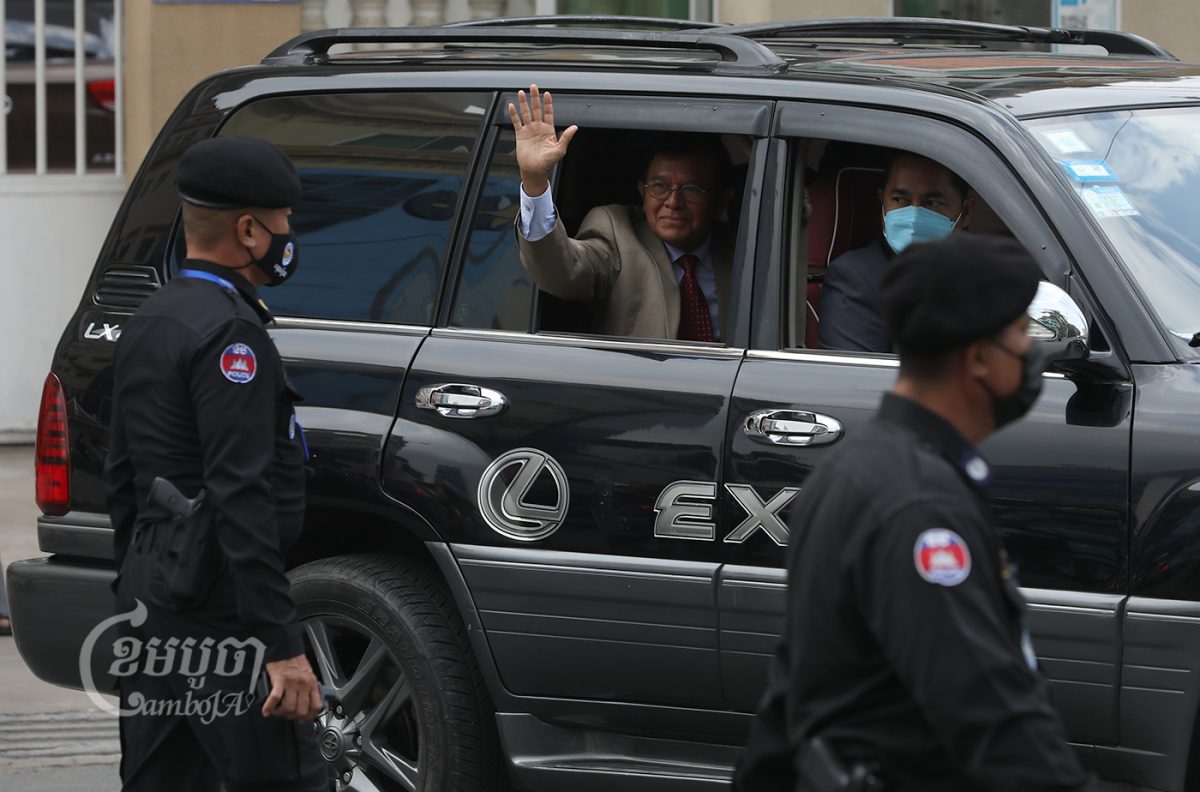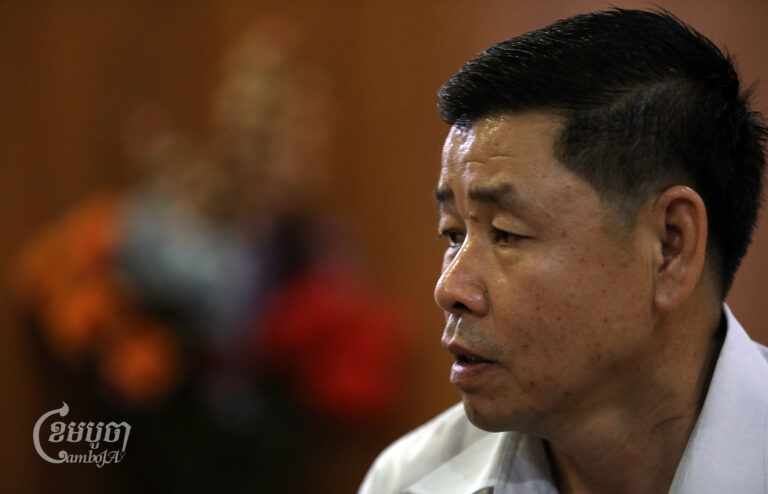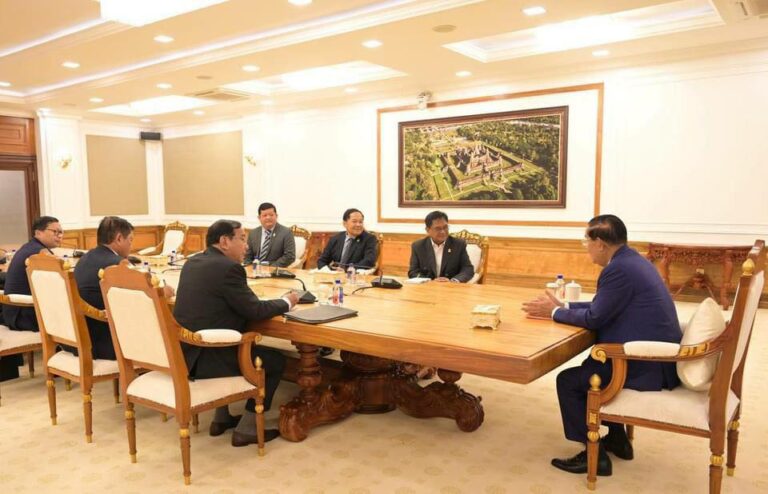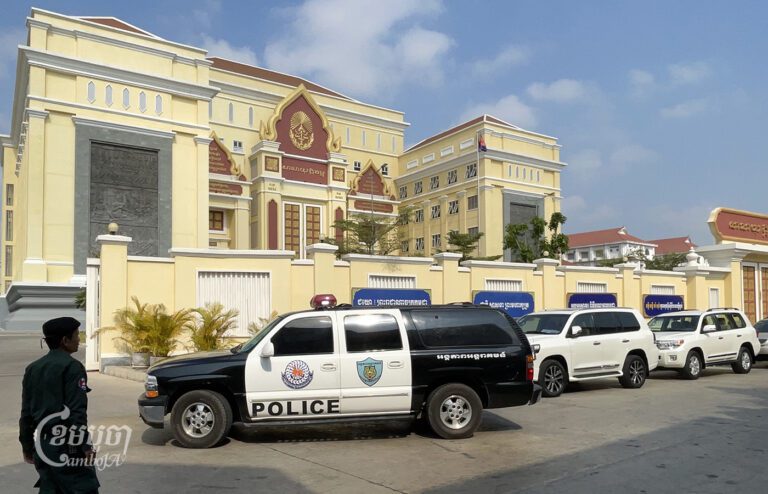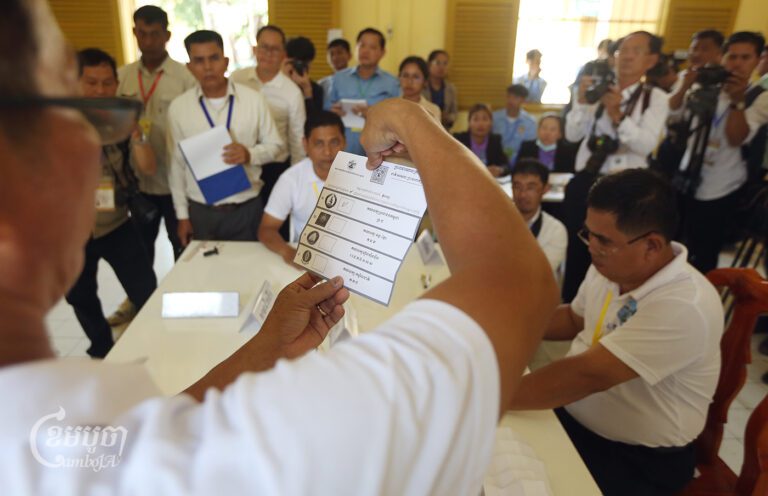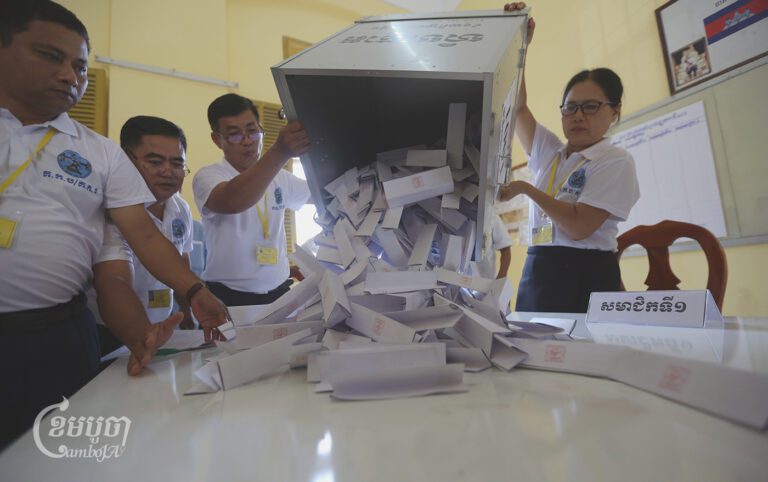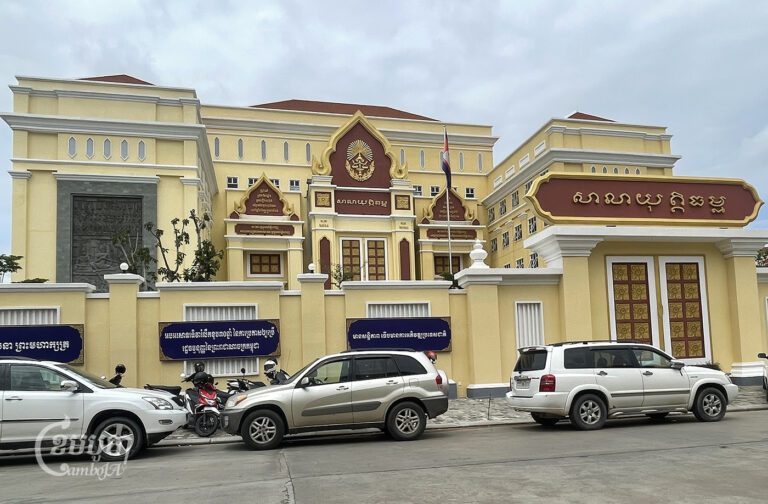At the trial of opposition leader Kem Sokha, Wednesday, the defense and prosecution sparred over the evidentiary impact of the government’s 2018 seizure of the headquarters of the Cambodia National Rescue Party.
Held for four hours just once a week, the trial against Sokha on treason charges dating back to 2017, has drawn criticism from legal monitors for violating his right to a speedy trial.
This week, Sokha’s lawyers argued that their ability to defend their client had been hampered by a February 2018 court order to seize the CNRP headquarters after the party’s former president Sam Rainsy was found guilty of defaming Prime Minister Hun Sen and failed to pay $1 million in compensation.
The defense played eight video clips showing Sokha at various locations and events. In the clips, lawyers noted, he had argued only for electoral change and adhered to a process of non-violence.
But deputy prosecutor, Plang Sophal, pushed Sokha’s lawyers to tell them the exact dates of the clips — saying that was necessary evidence to show he led illegal demonstrations that caused danger to national security.
“What was the exact date?” Sophal asked. “The exact date is the elemental evidence to show offense.”
Exasperated, lawyer Chan Chen replied: “[We] would have all the dates [of the video clips] if the CNRP wasn’t dissolved and the court didn’t seize all documents that were stored at the headquarters.”
Chen urged the prosecutor to name the exact date on which Sokha allegedly colluded with foreigners.
“The prosecutor has accused my client of colluding with foreigners, can you tell me what date and month? Which country? he asked.
But government lawyer Ly Chantola said Chen was simply stoking public “confusion” in the case, saying that blaming the headquarters seizure was a weak excuse to cover up for their lack of evidence.
“To fail to show the accurate evidence is the weakness of CNRP in managing its documents, and I think this reasoning is like a child’s,” Chantola said.
Sokha, who was president of the CNRP, was arrested September 3, 2017, and charged with conspiring with a foreign power for allegedly working with the US to attempt a so-called color revolution to overthrow the government of the ruling CPP.
Sokha has repeatedly maintained that his actions were all legal, noting that he only tried to win through an election, and not to overthrow the government.
“As I have verified, what I have done was for the nation and people’s interest,” he said in court Wednesday.
“I have lived in all regimes and I clearly know that to protect territorial sovereignty we can’t allow foreign invasion,” Sokha said.
Chak Sopheap, executive director at CCHR, attended Wednesday’s trial and later posted a statement on her Facebook page calling the charges unjust.
“Continuing to accuse and prolong this [trial] time violates the rights to freedom in politics,” she wrote.


